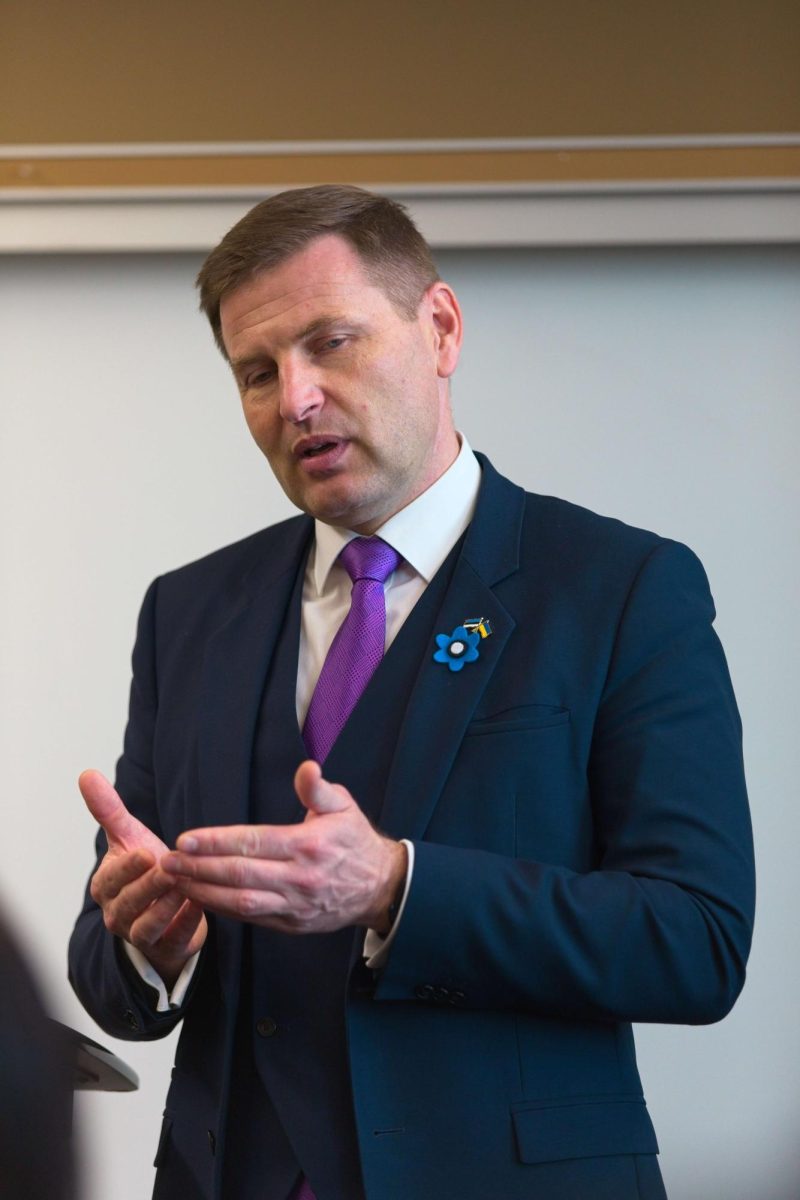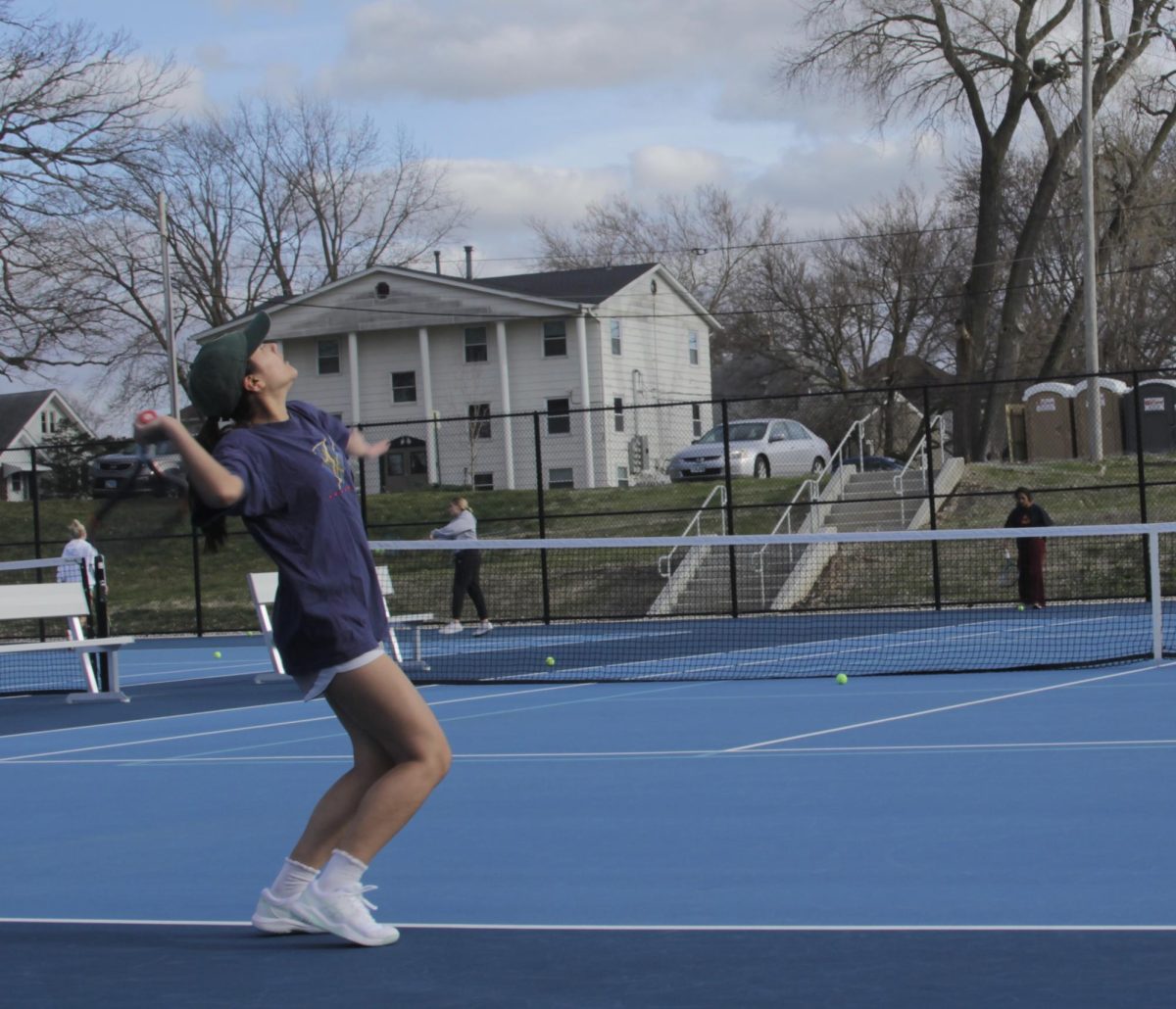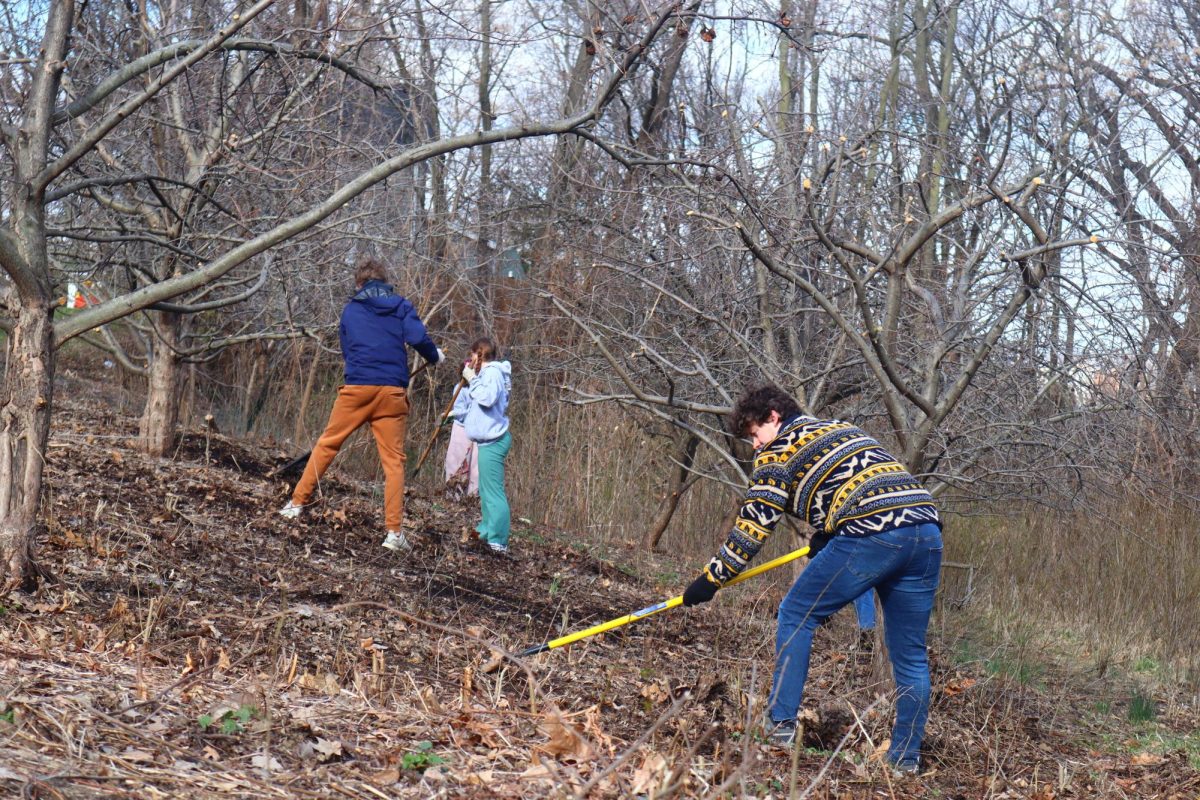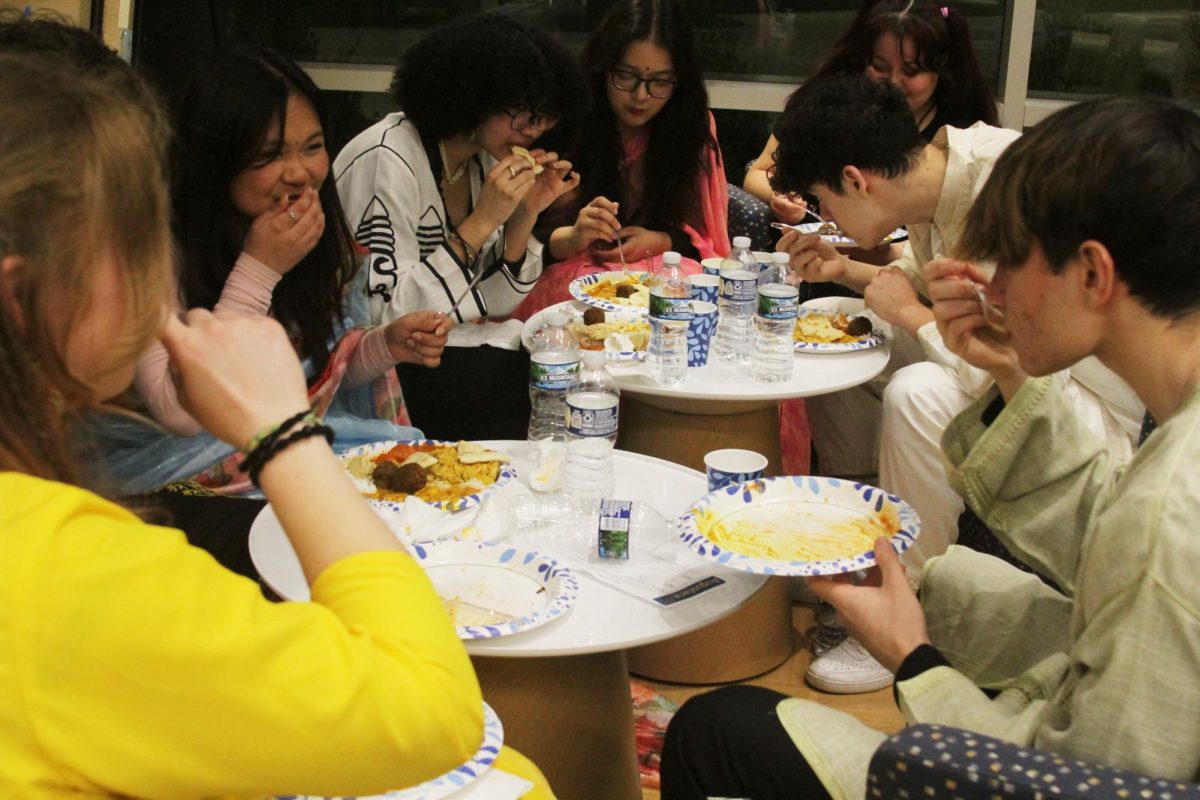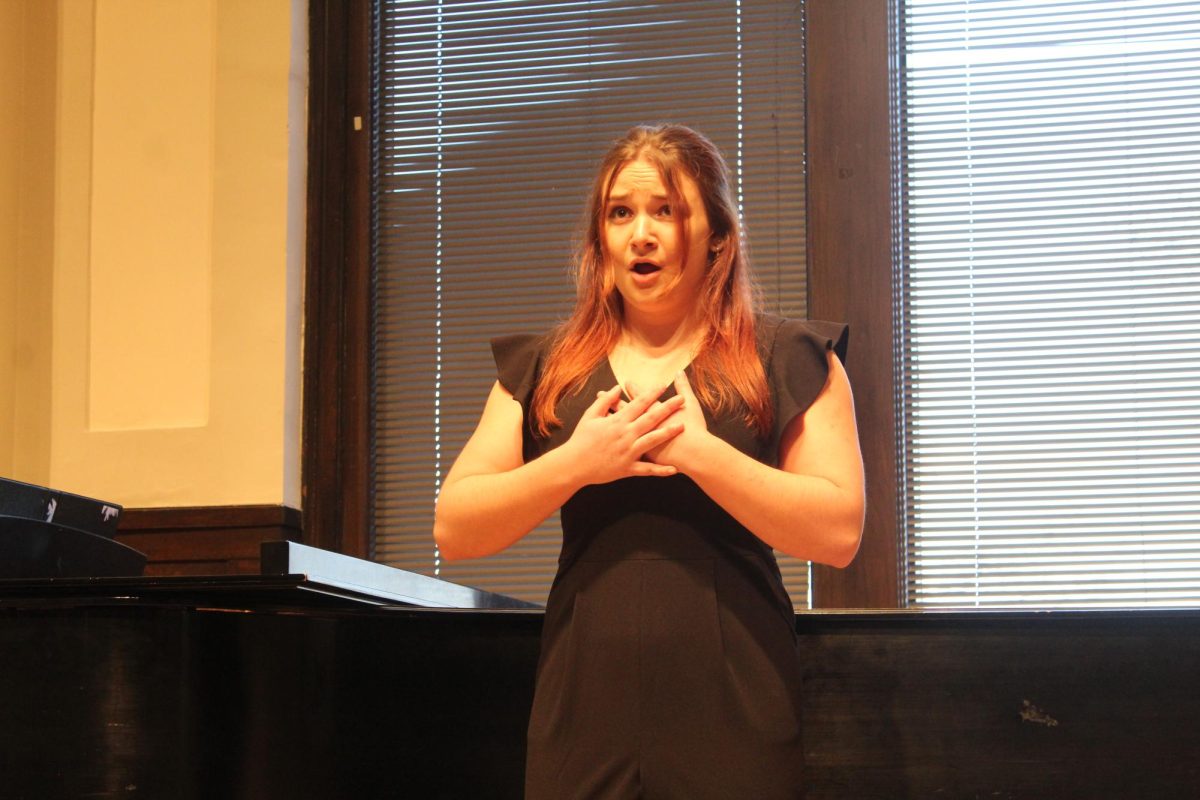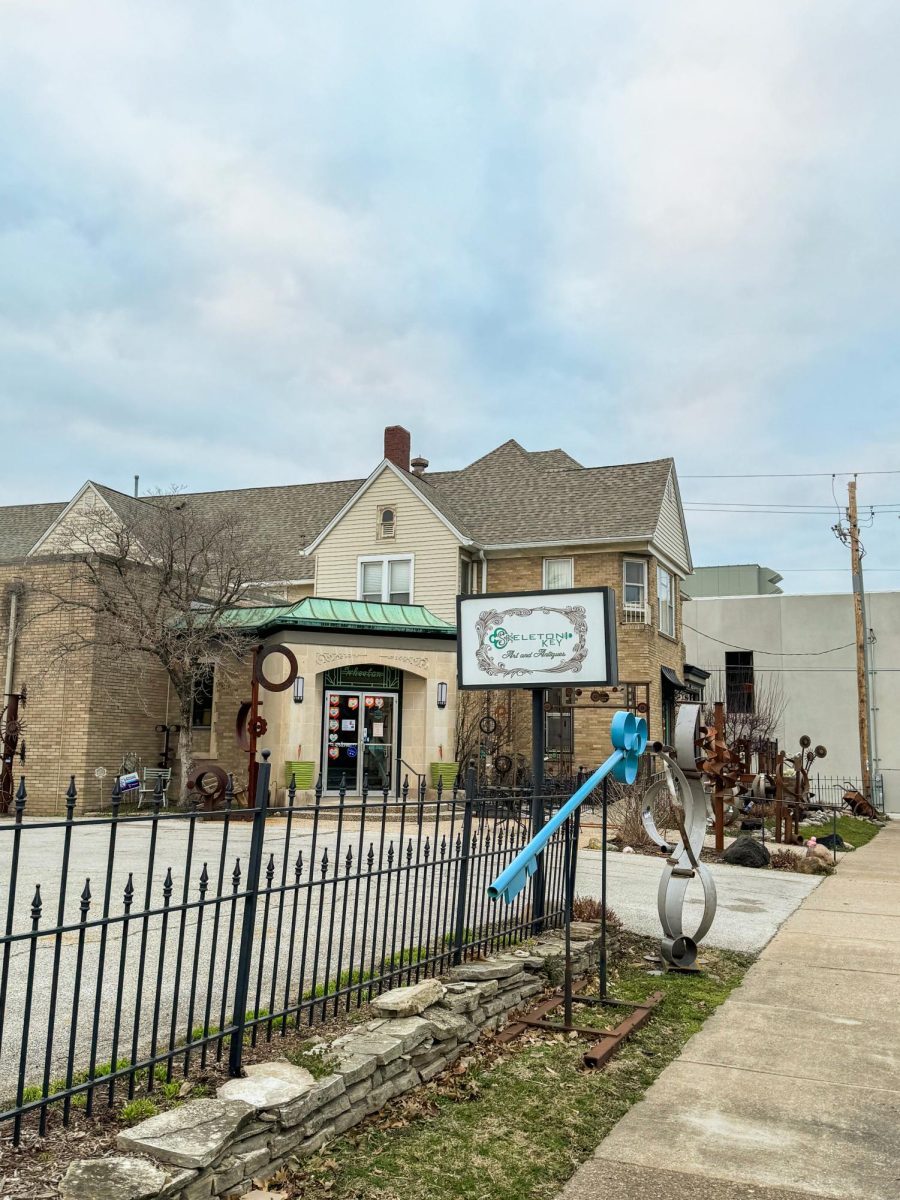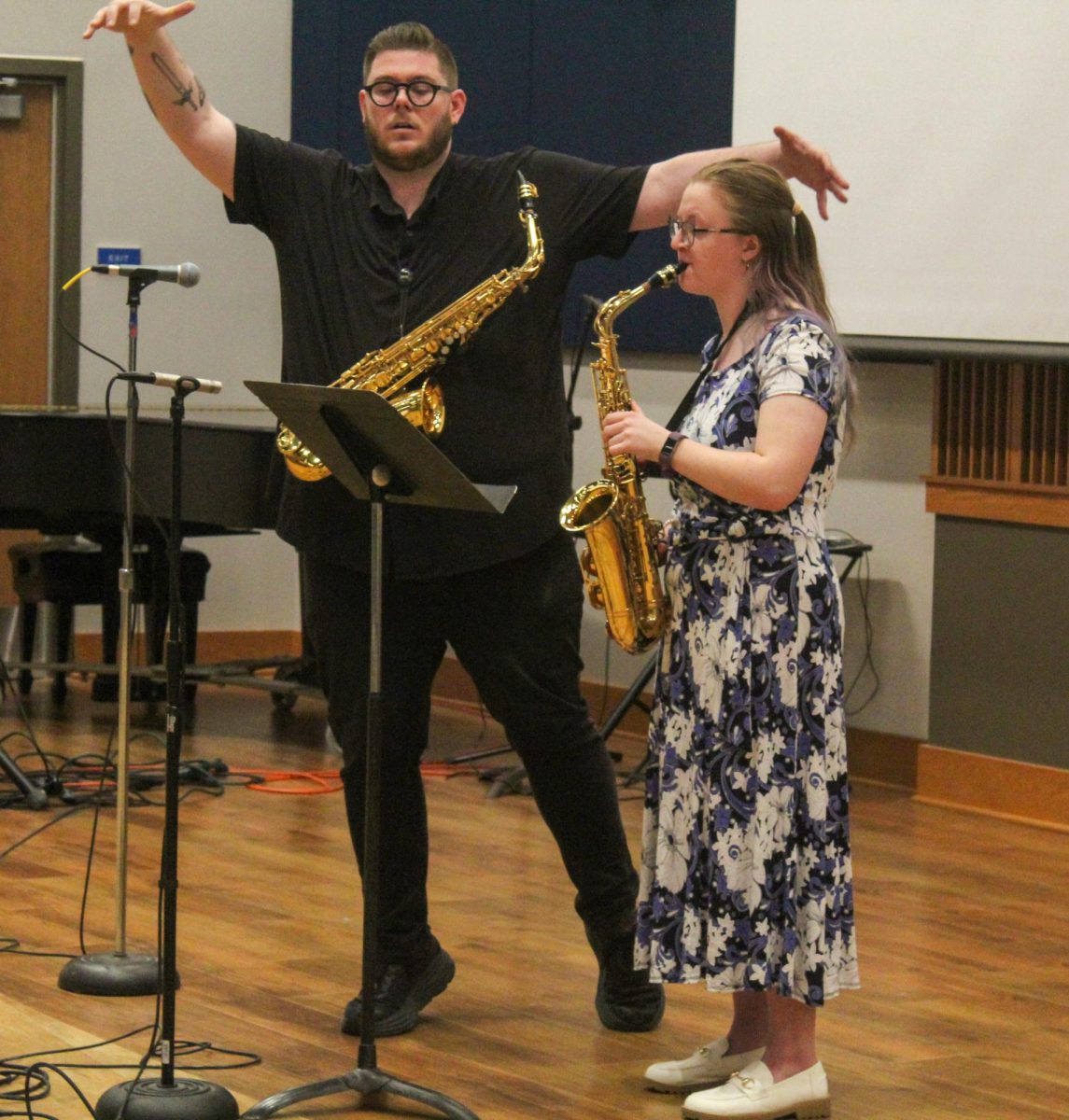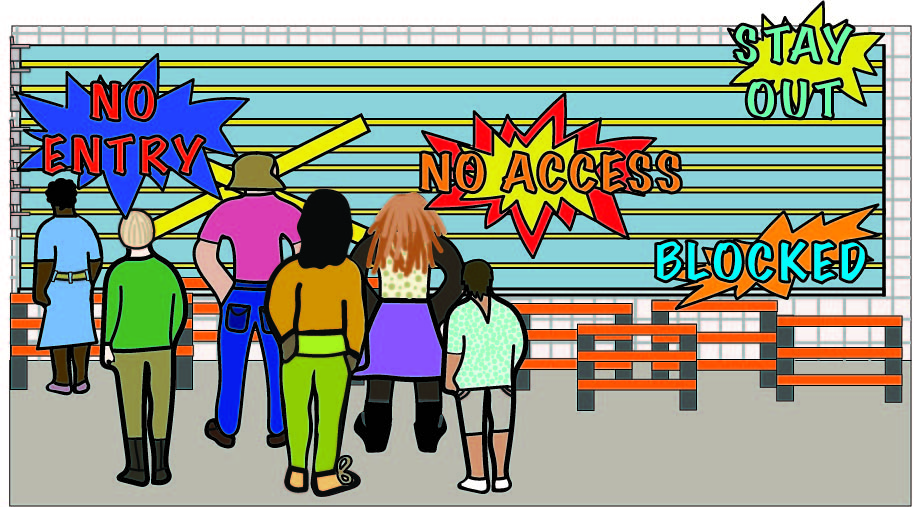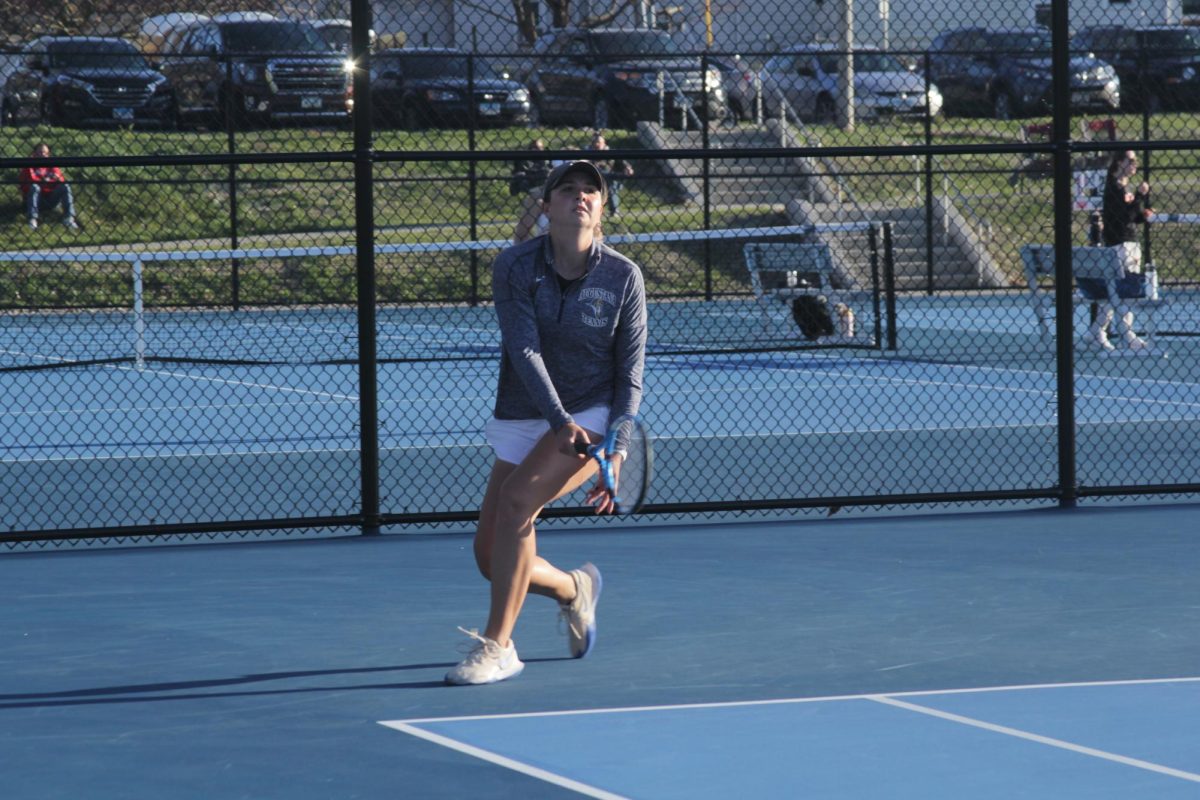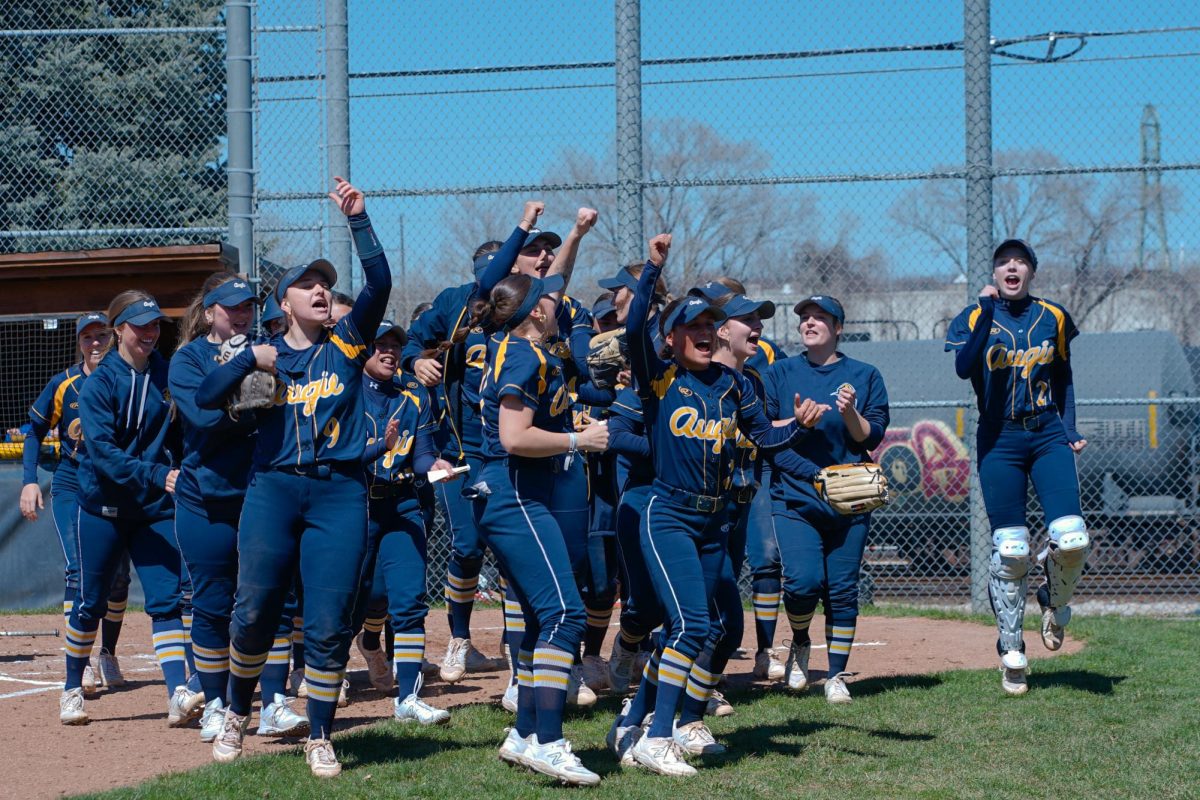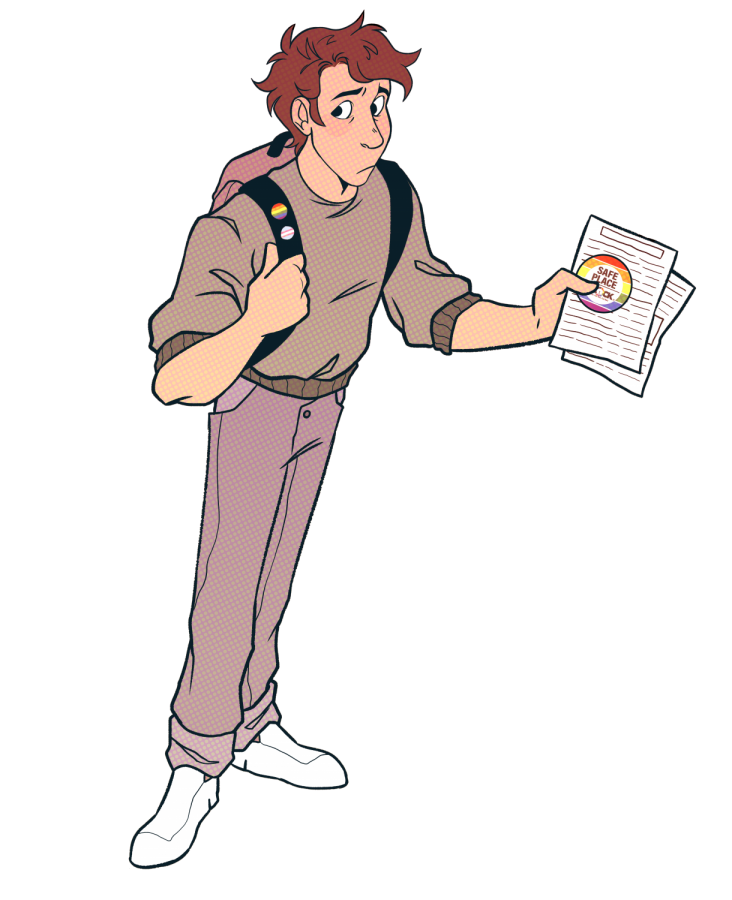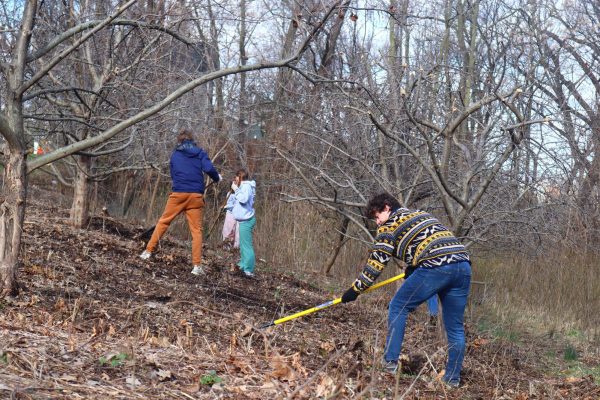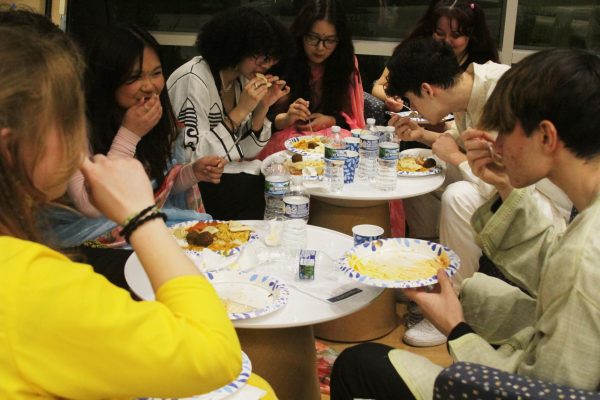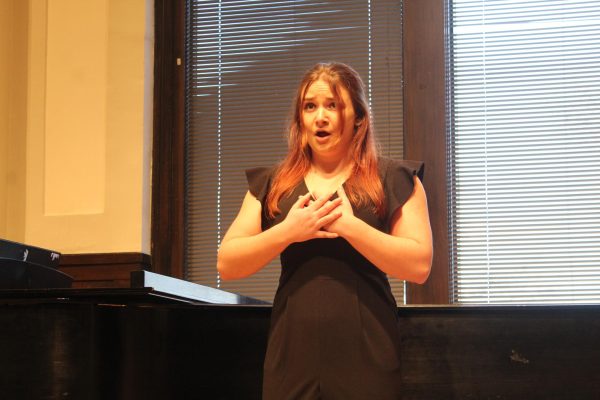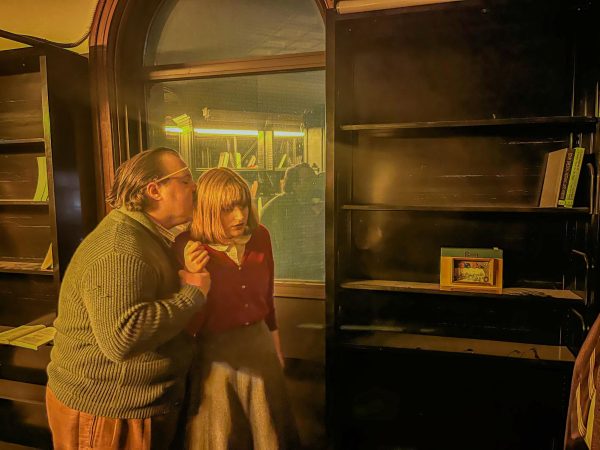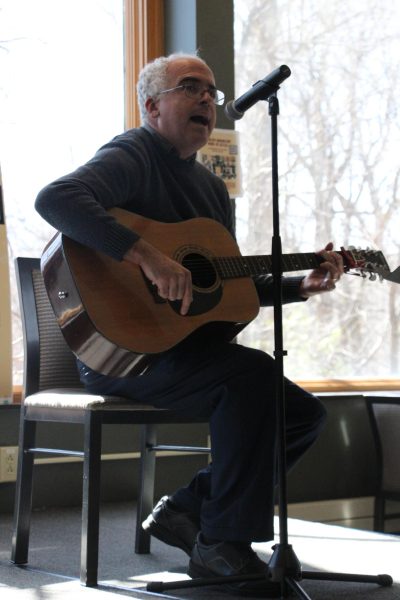Presentation helps develop good allyship
October 22, 2021
Augustana held an LGBT+ training session with Clock, Inc. in the Brunner Theater Center on Monday, Oct. 11. The presentation was advertised in an email to students as an opportunity to learn about the significance of National Coming Out Day while strengthening knowledge and promoting inclusion.
While several students were in attendance, the majority of the few people there were faculty members. As the group interacted with Chase Norris, director of Clock, Inc., they reflected on how the presentation could be applied to their work in admissions, financial aid and other departments.
The presentation covered the basics of LGBT+ inclusion efforts. Norris established the importance of various labels and broad terms to help attendees understand the language used to discuss the LGBT+ community.
“No one knows everything,” Norris said, “but having a general understanding of the LGBT+ community goes a long way, and it shows.”
Norris started off with the basics. “Gender identity is how someone identifies,” he said. “Gender is a spectrum; it’s not one exact way. Sexual orientation is someone’s emotional, romantic, sexual attraction to somebody else.”
While this information may be very familiar to many college students, it is new knowledge for adults who did not grow up with open information about gender and sexual orientation.
While Norris was pursuing his master’s degree in counselor education, he founded an LGBT+ youth support group based in the Quad Cities. As his degree program wrapped up, the teenagers in the support group asked for one thing: a community center to continue having a safe space. In response, Norris founded the non-profit organization Clock, Inc. in 2018.
In 2019, Norris opened the doors to the non-profit’s community center. Now, Clock, Inc. is able to provide services to local LGBT+ community members and allies, host workshops (largely before COVID-19) and provide resources to interested people.
At Augustana, Clock, Inc. helped to educate attending faculty and students to guide them in making Augustana a safer place for LGBT+ members of the college community.
“There’s a huge difference between sex and gender. Gender is how someone views themselves and what they identify with where sex is more biological. And if you ever get those confused, gender is up here, sex is down there,” Norris said, gesturing up and down vaguely.
The crowd chuckled at the simplification, as the training was not the venue for in-depth breakdowns of terminology and lived experience. If anyone in attendance was curious about any information, they could reach out to Clock, Inc. for more information.
Students in attendance were also open to providing insight to faculty members who were concerned about how to be respectful to students. Some faculty were concerned about how they could use respectful language for students. Others wanted to know specific terminology around dead names, birth names, legal names and chosen names.
Attending students provided consensus that above all else, intention matters more than getting things right on the first try. Beyond that, being respectful matters more than being overly apologetic when mistakes are inevitably made.
Norris also spoke about gender expression and valuing individuals’ choices:
“I always let people know if they are not hurting themselves or others, let them do what they want,” he said. “The more confidence you have as an individual, you’re gonna see a better student, a better friend, a better community member.”
His advice centered around valuing people as individuals rather than labels, as language is designed to explain a person’s experiences, which are always unique.
Attendees to the presentation learned that input from students and LGBT+ community members is the best way to be a good ally. However, making the effort to attend programs like the one provided Oct. 11 is an important part of allyship as well.

